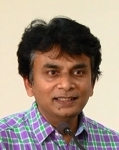Conflict Alerts # 345, 11 March 2021
 D. Suba Chandran
D. Suba Chandran In the news
On 8 March, the George Floyd trial, officially referred to as the trial of State of Minnesota v. Derek Chauvin began in a County District Court in Minneapolis. On the first day, the trial was postponed, with a question over whether the former police officer Chauvin should be charged with a third-degree murder charge in the case relating to the killing of George Floyd. On 10 March, the Minnesota Supreme Court has announced that it would not intervene in the trial, thus removing the potential delay to the trial.
On 9 March, three jurors were selected who would for the part of a 12 member jury that would look into the trial. On 10 March, two more jurors were selected. Judge Peter Cahill, who is overseeing the case, has planned to keep three weeks to finalise the selection of the jury.
Issues in the background
First, the legal issue over what should Derek Chauvin be charged with. Chauvin, the police officer who was responsible for the death of George Floyd last year has been charged with second-degree murder and second-degree manslaughter. Besides Chauvin, there were three more police officers with him at that time; they have been charged with abetting second-degree murder and manslaughter. The third charge against Chauvin - with third-degree murder was dismissed by Judge Peter Cahill last year, for which an appeal was made at the Minnesota Supreme Court.
Second, selection of the jury for, what should be one of the most important trials during the recent years. According to the requirement, there should be 12 jurors for the trial, and selecting them according to a set procedure itself would be a challenge. Multiple questions have been posed to the potential jurors that would include their views on the Black Lives Matter movement, the number of times they had seen the video of the death of George Floyd, interaction with the law enforcement etc.
Third, the pressure on the trial. The supporters of the BLM consider that the trial needs no witness and the video itself is sufficient. They also consider the case as open and shut, and expect that Chauvin should be declared guilty with a maximum punishment. As the trial began on Monday, the BLM returned to the streets in Minneapolis; in the next few weeks, one should expect a larger street presence and public pressure.
Fourth, international attention. The trial would be watched at the global level. Last year, the BLM movement in the US also kicked off a series of similar movements across the world. Everyone would be watching the trial closely; For them, it is not only Derek Chauvin who is on trial.
In perspective
The issue is no more limited to justice to George Floyd, who was killed last year. His death has triggered a larger movement – the BLM, across the US and elsewhere in the rest of the world. Hence, the trial is not limited to an individual who got killed and holding a police officer accountable for the same. The trial is about social justice, racial equality, the role of institutions (then police, and now the judiciary), and American values. It is not Chauvin who is on trial; it is the US.